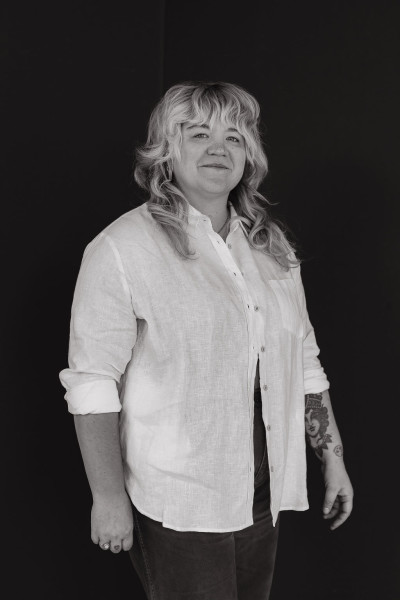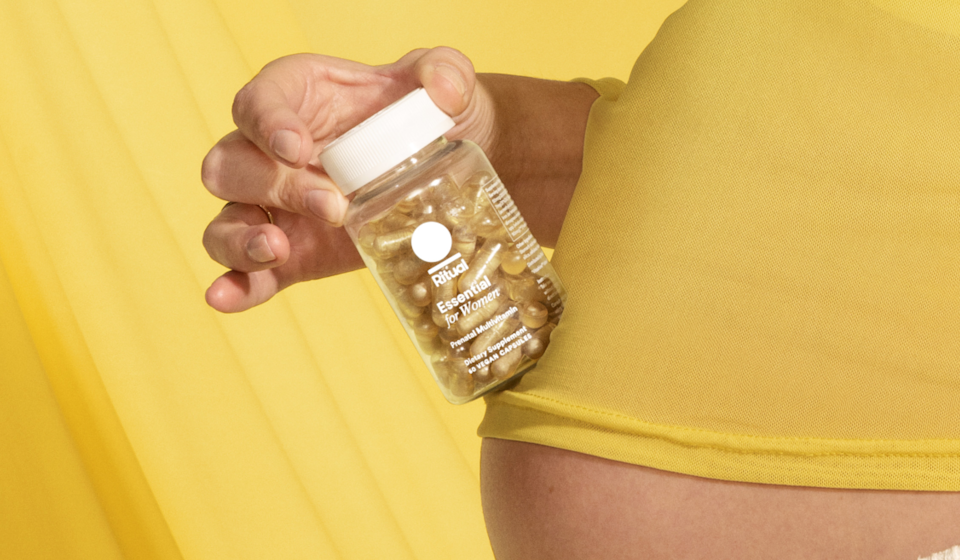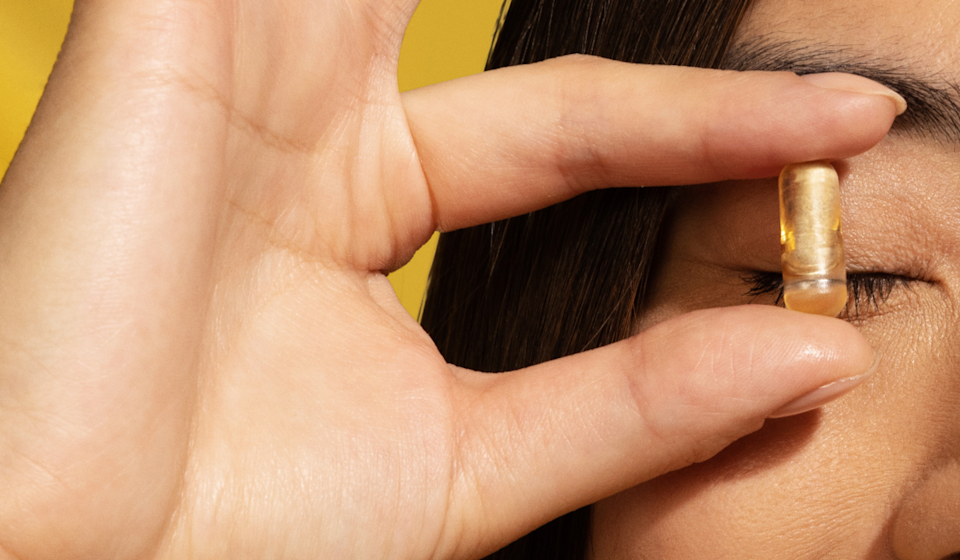Essential Takeaways
• Pregnancy looks different for everyone, and talking to other women about their experiences can be a helpful way to prep.
• No matter your journey, supporting your body pre and post pregnancy is a must, and Ritual can help you out with the Essential Prenatal multivitamin, Natal Choline, and Essential Postnatal multivitamin.*
From “What to Expect When Expecting” to “Expecting Better,” you’d be hard-pressed to find a life stage that’s more cloaked in mystery — and ripe for confessional — than pregnancy. Even if you’ve been here before, it’s always good to know that every pregnancy is a different experience. Sometimes, you can read all the books, listen to all the podcasts, take that 3-day prenatal workshop, and still pregnancy throws some wacky curveballs your way.
So, in the spirit of transparency, we gathered some Ritual staffers around the (virtual) watercooler and asked them what to expect when you’re pregnant. Do you really outgrow your shoes forever? Why* don’t* you see your care provider every week? And where’s this glow everyone talks about?
What I Didn’t Expect During Pregnancy (But Turns Out to Be Totally Normal)
1. Pregnancy doesn’t feel amazing for everyone.
“Being pregnant was not my favorite, and I realized that was okay. The experience is different for everyone and I honored my own journey. I was amazed that my body could form this little baby inside of me. The biology of it all was fascinating!” — Isadora, Ritual Employee
The list of unexpected and uncontrollable changes that the body endures during pregnancy is endless. Everything from hyperemesis gravidarum (aka the deceptively named ‘morning’ sickness) to hemorrhoids (fun!), hyper-mobility, random hair growth, and what feels like leaking from every orifice (sorry, but true!) is on the menu for the next 9 months, and the most frustrating part is that you don’t have much choice in the matter — your experience chooses you. Mostly.
Pregnancy affects every major organ and function within the body: there are cellular changes – your body literally grows its own organ (the placenta) during every pregnancy; red blood volume increases by 20-30% and in turn, the heart works 30-60% harder to keep up; a flood of hormones send the adrenal glands into overdrive. (1) That’s not to mention increased relaxin levels that help soften ligaments, allowing your body to expand and soften to accommodate a growing baby, which is also why you might find your feet lengthen during pregnancy, rendering your shoe collection obsolete forevermore.
All these changes can feel like a lot and if being pregnant brings you more stress than joy, that’s a very normal and valid experience.
2. Not all baby bumps look the same.
“It doesn’t necessarily mean something is wrong – or not – with how your baby is developing if you gain weight early, unevenly, or if you have a bigger or smaller bump than someone else. I’ve heard that it’s common to ‘pop’ later in your first pregnancy and I have found this to be true. I’m now 30 weeks and really starting to look and feel pregnant for the first time.” — Larissa, Ritual Employee
Bodies have always come in all shapes, sizes, and abilities, and that doesn’t change during pregnancy. The size and position of your placenta, uterus, and growing baby all contribute to the shape of your belly, as does your frame and body size pre-pregnancy. The perfectly round beach-ball-belly is a homogenized ideal of pregnancy that doesn’t account for body diversity. Your body will continue to shapeshift (which is, objectively, very cool) during pregnancy and postpartum in its own, beautiful way.
3. The shift in focus from mom to baby.
“I was really surprised by the feeling of loss I felt when all of the time and attention shifted from me to the baby after birth. It was one of the many moments postpartum that suggested once the baby is born, mothers are sort of discarded.” — Anna, Ritual Employee
Prenatal visits at the start of pregnancy are few and far between, and it can feel like you’re floating in limbo, desperately hoping for some reassurance that yes, you are indeed still pregnant, and yes, you don’t need to see a doctor every week. Most people will not see their OB/GYN or midwife until around 8 weeks pregnant and when it’s your first time or the journey to conceiving has been long and winding, those first few months can feel like an eternity. By the end of a full-term pregnancy, you’ll see your care provider much more frequently and hopefully cement a strong, trusting relationship with them. This is essential as you advocate for yourself during pregnancy, birth, and postpartum — and it can also feel jarring when suddenly that care and attention abruptly stops after your baby is born.
Birth often takes over the conversation during pregnancy, but it’s just as important to hatch a postpartum plan. Solidify your rings of support and ask your care provider what their postpartum care will look like. Prep for the worst and hope for the best!











